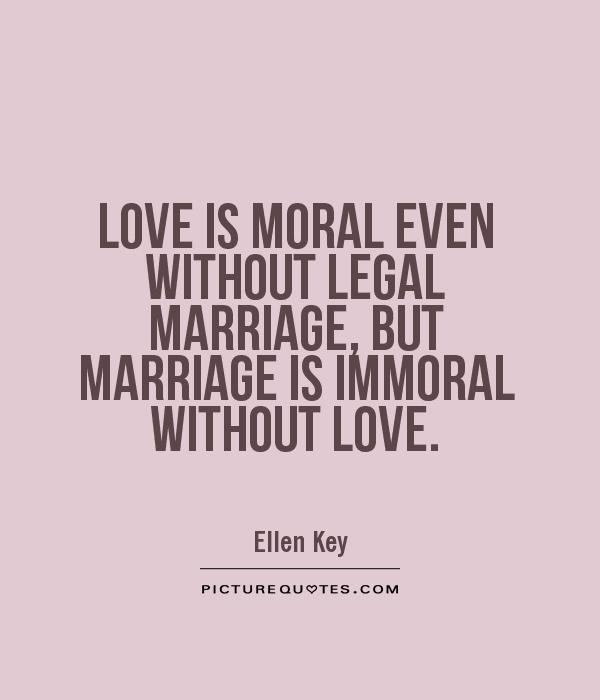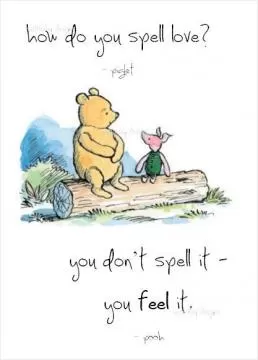Love is moral even without legal marriage, but marriage is immoral without love

Love is moral even without legal marriage, but marriage is immoral without love
Ellen Key, a prominent Swedish feminist and writer, believed in the importance of love and morality in relationships. She argued that love is the foundation of a healthy and fulfilling partnership, and that without it, marriage becomes nothing more than a legal contract devoid of any true meaning or value. Key's words resonate deeply in today's society, where the institution of marriage is often seen as a social obligation rather than a genuine expression of love and commitment.Key's assertion that love is moral even without legal marriage speaks to the idea that true love transcends societal norms and expectations. Love is a powerful force that can bring two people together in a deep and meaningful way, regardless of whether or not they have a piece of paper declaring them legally married. In fact, Key believed that love should be the guiding principle in any relationship, and that without it, marriage loses its moral significance.
On the other hand, Key argued that marriage without love is inherently immoral. In her view, entering into a marriage solely for the sake of social status, financial security, or other external factors goes against the true essence of what marriage should be. Without love as the foundation of a marriage, the relationship becomes hollow and devoid of the emotional connection that is necessary for a healthy partnership.
Key's words highlight the importance of prioritizing love and emotional connection in relationships, rather than focusing solely on the legal and societal aspects of marriage. In today's world, where divorce rates are high and many marriages end in unhappiness and dissatisfaction, Key's message serves as a powerful reminder of the true meaning of love and commitment. By placing love at the center of our relationships, we can create partnerships that are truly fulfilling, meaningful, and moral.












 Friendship Quotes
Friendship Quotes Love Quotes
Love Quotes Life Quotes
Life Quotes Funny Quotes
Funny Quotes Motivational Quotes
Motivational Quotes Inspirational Quotes
Inspirational Quotes